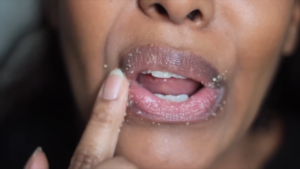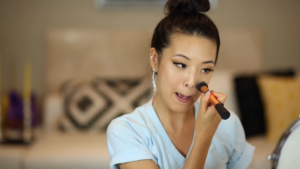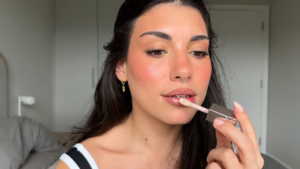Navigating the world of facial care can be confusing, especially with the abundance of myths and misconceptions circulating. From old wives’ tales to modern-day misinformation, it can be challenging to discern fact from fiction. Are expensive products always better? Will oily skin cause more acne? Can natural remedies really work? Understanding the truth behind these common beliefs is crucial for effective skincare. In this guide, we will debunk popular facial care myths and provide factual information to help you make informed decisions about your skincare routine, ensuring your skin stays healthy, clear, and radiant.
Separating Fact from Fiction: Unveiling the Truth Behind Common Skincare Beliefs
1. Myths vs. Facts: Debunking Popular Skincare Misconceptions
In the realm of skincare, separating myths from facts is essential for achieving healthy skin. Common misconceptions like “pores can open and close” or “natural ingredients are always better” often lack scientific backing. Understanding that pore size is genetically determined and that both natural and synthetic ingredients can be effective helps in making informed skincare choices. By debunking these myths, you can focus on evidence-based practices that truly benefit your skin, ensuring it remains clear, radiant, and well-nourished.
2. Skincare Dos and Don’ts: Navigating the World of Facial Care
Navigating the do’s and don’ts of skincare involves understanding what practices are beneficial and which ones to avoid. Do cleanse your face twice daily to remove dirt and oil buildup, but don’t over-exfoliate, as it can damage the skin barrier. Do wear sunscreen daily to protect against UV damage, but don’t skip moisturizer, even if you have oily skin. Tailoring your skincare routine to your skin type and concerns ensures effective results. Consulting skincare professionals can provide personalized guidance, helping you establish a routine that promotes long-term skin health.
3. Fact or Fiction? Examining Common Skincare Claims
Examining common skincare claims involves critically evaluating the validity of popular beliefs. Claims like “anti-aging products can reverse wrinkles completely” or “all-natural products are safer” require scrutiny. While anti-aging products can improve skin texture and appearance, they may not completely eliminate wrinkles. Similarly, natural ingredients can offer benefits but aren’t inherently safer or more effective than synthetic alternatives. By examining these claims through scientific research and expert advice, you can make informed decisions about skincare products and practices that truly deliver results for your skin concerns.
Unveiling the Truth Behind Skincare Myths: Achieving Radiant Skin
1. Clearing Up Confusion: Distinguishing Fact from Fiction in Skincare
Achieving radiant skin starts with clearing up confusion surrounding skincare myths. Common misconceptions like “sunscreen is only necessary on sunny days” or “natural ingredients are always gentle” can lead to skincare mistakes. Understanding that sunscreen is crucial daily, regardless of weather, and that natural doesn’t always mean safer helps in making informed choices. By distinguishing fact from fiction, you can develop a skincare routine that promotes skin health and radiance effectively.
2. Skincare Myths Debunked: Unveiling the Truth for Healthy Skin
Debunking skincare myths is essential for maintaining healthy, glowing skin. Claims such as “pores can shrink with cold water” or “exfoliating daily is beneficial” often lack scientific basis. Learning that pores are genetically determined and over-exfoliating can damage the skin barrier guides towards better practices. Embracing evidence-based skincare ensures you avoid harmful habits and adopt routines that truly nurture your skin’s natural radiance.
3. Fact vs. Fiction: Making Informed Decisions for Your Skincare Routine
Sorting fact from fiction empowers you to make informed decisions about your skincare routine. It involves critically evaluating claims like “all chemicals are harmful” or “expensive products are always better.” Recognizing that skincare ingredients vary in efficacy and safety and that price doesn’t always correlate with quality enables smarter choices. By educating yourself on skincare facts, you can tailor a routine that addresses your skin’s needs effectively, promoting a radiant and healthy complexion.
4. Empowering Your Skincare Journey: Separating Fact from Fiction
Empowering your skincare journey involves separating fact from fiction to achieve optimal skin health. Believing in myths like “natural oils are always comedogenic” or “aging can’t be slowed down” can hinder progress. Understanding that some natural oils are non-comedogenic and that skincare routines can mitigate signs of aging encourages proactive steps. By staying informed and adaptable, you can navigate skincare choices confidently, ensuring your skin radiates health and vitality.
Achieving Clear, Radiant Skin: Debunking Common Skincare Myths
Achieving clear, radiant skin involves debunking common skincare myths that often misguide skincare routines. Many believe that harsh scrubbing eliminates acne, yet it can exacerbate irritation and inflammation. Another myth is that natural ingredients are universally gentle; while some are beneficial, others can cause allergies. Additionally, there’s a misconception that skipping moisturizer benefits oily skin, but adequate hydration actually helps balance oil production. By understanding and correcting these myths, individuals can develop effective skincare habits. Tailoring routines to suit skin type and concerns based on accurate information ensures healthier, clearer skin that glows with natural radiance.








